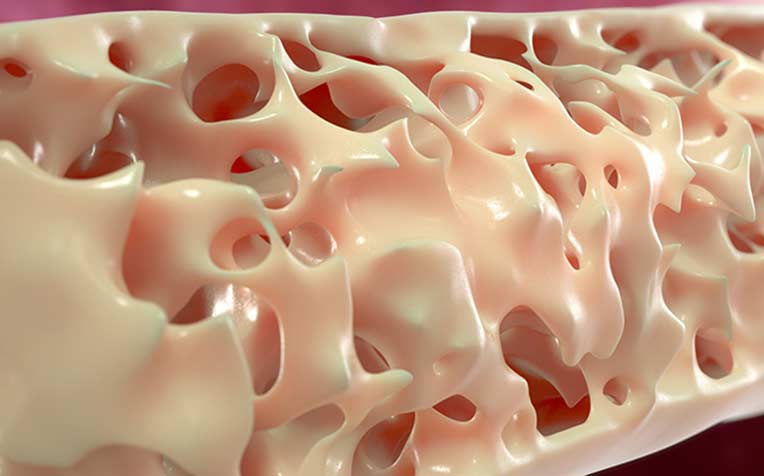
Caption: 'Bones with holes' literally refers to osteoporosis. This bone disease occurs when bones lose minerals like calcium at a faster rate than the body can replace them. As a result, bones become less dense, lose strength and break more easily. In fact, according to the Department of Geriatric Medicine at Changi General Hospital (CGH), most people are unaware that they have this condition until a fracture happens. Read on to learn about the warning signs of this 'silent disease'. (iStock photo)
Osteoporosis particularly affects women in their middle and later years, although some men are also affected.
Women are four times more likely to suffer from osteoporosis than men. Half of women over the age of 50 will experience a fracture to their hip, wrist, spine, or other bone due to osteoporosis. These facts were shared by the
Department of Geriatric Medicine at
Changi General Hospital (CGH), a member of the
SingHealth group.
Risk factors for osteoporosis
Some factors that may predispose an individual to osteoporosis include:
- Family history of osteoporosis
- Inadequate amounts of dietary calcium
- Low vitamin D levels
- Smoking
- Alcohol intake of more than two standard drinks per day
- Early menopause (before the age of 45)
- Long-term use of medication such as corticosteroids and anti-epileptics
- Medical history, such as thyroid disease or an overactive thyroid gland
Related article:
Foods to avoid as they can harm your bones
FAQs about osteoporosis
Here are answers to some commonly asked questions about osteoporosis.
1. How do I know if I have osteoporosis?
As osteoporosis is a silent disease, it causes no specific pain or symptoms. Some signs you can look out for are:
- Receding gums
- Decreased strength in your grips
- Weak and brittle nails
- Cramps and muscle aches
- Height loss
Related article: Health screenings to go for – categorised by age group
2. Besides calcium, what are other essential nutrients vital for good bone health?
When it comes to healthy bones and preventing osteoporosis, calcium alone is not enough. There are a number of vital nutrients that your body needs for strong bones. The most important of these are
magnesium, vitamin D, phosphorus and vitamin K.
Magnesium is found in nuts, seeds, whole grains, seafood, legumes, tofu and many vegetables. Our skin, when exposed to sunlight, also produces vitamin D, which helps in the absorption of calcium and phosphate. You can also get vitamin D from oily fish such as salmon, mackerel, herring and sardines, as well as red meat and eggs.
Other nutrients that may play an important role in bone development are vitamin C and vitamin B12.
Related article:
Prevent osteoporosis with 10 doctor-recommended tips
--
Articles on
HealthXchange.sg are meant for informational purposes only and cannot replace professional surgical, medical or health advice, examination, diagnosis or treatment.